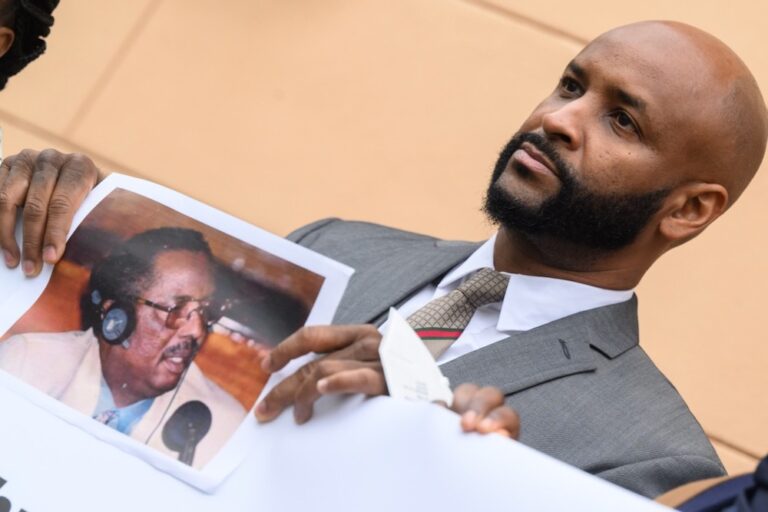On 16 April 1996, Chikeluba Kenechuku, a journalist for the “Daily Observer” newspaper, was instructed by authorities to report to the National Intelligence Agency (NIA) office, where some of his previously seized documents and personal effects were returned to him. Kenechuku was then driven by NIA agents to Immigration Headquarters in Banjul and handed over […]
On 16 April 1996, Chikeluba Kenechuku, a journalist for the
“Daily Observer” newspaper, was instructed by authorities to
report to the National Intelligence Agency (NIA) office, where
some of his previously seized documents and personal effects were
returned to him. Kenechuku was then driven by NIA agents to
Immigration Headquarters in Banjul and handed over to immigration
authorities. At 15:00 hours, they drove Kenechuku through the
Andalai Immigration Control Post into Senegal. At 21:30 hours,
they arrived in Kaolack, about 150 kilometres from Dakar, at
which time Kenechuku was ordered to get out of the car. The
Gambian immigration authorities then returned his passport and
served Kenechuku with deportation papers which he was forced to
sign. Kenechuku eventually found his way to Dakar, without any
money, and is now being sheltered by a local church organization.
Kenechuku, a Nigerian national who has been working in The Gambia
for two years, has been routinely harassed by Gambian security
agents since late 1995. He fled to Senegal in early March 1996
after receiving threats from Gambian security agents for articles
he had written for the “Daily Observer”. On 30 March, he was
arrested at Andalai Immigration Control Post while returning from
Senegal to The Gambia, where his property and travel documents
were seized by a NIA agent. After being detained overnight at the
immigration post, Kenechuku was transported the following day to
the NIA office in Banjul where he was interrogated, beaten and
held incommunicado until 4 April. Upon his release that day,
Kenechuku was told that he could have been deported to Nigeria or
prosecuted but that Gambian authorities chose not to do so
because they wished to maintain good relations with Nigeria.
Kenechuku was released on the condition that he not report the
incident or discuss what had transpired with anyone. He was also
instructed to report daily to the NIA office.
Recommended Action
Send appeals to authorities:
previous harassment and maltreatment to which he was subjected
act of reprisal due to his work as a journalist
Appeals To
His Excellency Lieutenant General Yaya Jammeh
Chairman of the Armed Forces Provisional Ruling Council
State House
Banjul, The Gambia
Fax: +220 227 034
Please copy appeals to the originator if possible.


